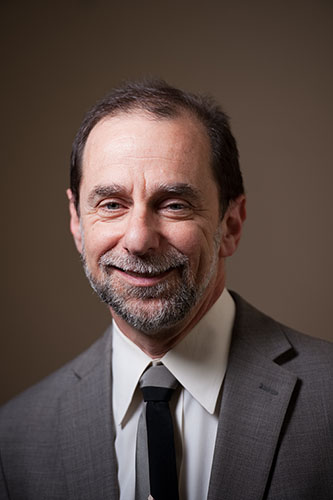
Rationality, Evidence, and Public Discourse
2017 Romanell–Phi Beta Kappa Lectures
Rush Rhees Library
Lecture 1: What is Reasonable Belief?
Thursday, September 7, 7–8:30 p.m., Hawkins-Carlson Room
Lecture 2: Argument and Public Discourse
Thursday, September 14, 7–8:30 p.m., Humanities Center Conference Room
Lecture 3: Can Reasonable People Disagree?
Monday, September 18, 7–8:30 p.m., Humanities Center Conference Room
These lectures are free and open to the public. Livestreams willl be available for viewing at www.rochester.edu/news/live.
When people disagree, and all involved in the discussion believe that theirs is the reasonable position, what’s to be done?
That’s a question that underlies “Rationality, Evidence, and Public Discourse,” a lecture series in September by philosopher Richard Feldman. Dean of the College for a decade before he stepped down last spring, Feldman is the Romanell–Phi Beta Kappa Professor in Philosophy for this academic year, a national award presented annually to a distinguished philosophy scholar in recognition of achievements and contributions to the discipline.
At the root of Feldman’s lectures is a simple proposition: a reasonable belief is one that’s guided by the evidence. That much might seem obvious, he says, but is it really such an uncontroversial idea?
In his first lecture, Feldman will examine the challenges that complicate the relationship between evidence and belief. In the second, he’ll talk about the kinds of misunderstandings and confusion that can get in the way of using discussions with others to arrive at reasonable beliefs. And in the final lecture, he’ll scrutinize the possibility of reasonable disagreement.
As an epistemologist, Feldman has spent his career thinking about the nature of knowledge and rationality. With Rochester colleague Earl Conee, he contributed to the development of evidentialism, the idea that beliefs are worth only as much as the evidence supporting them.
Feldman has always been interested in bringing his philosophical explorations to bear on the wider world. He calls his project “applied epistemology,” and he’s developed it in an undergraduate course, a textbook, and an effort to introduce some of this material into public schools.
He’s carried out that work with the goal of providing useful theoretical foundations for thinking effectively about real issues and taking part in public discussions of them.
The lectures won’t discuss the substance of current controversies, but Feldman hopes that what he does cover will be useful for those who take part in discussions about them.
“It seems to me, and to plenty of others, that there’s a general need for this sort of thing now,” he says. “This struck me as a good thing to do in these lectures.”



